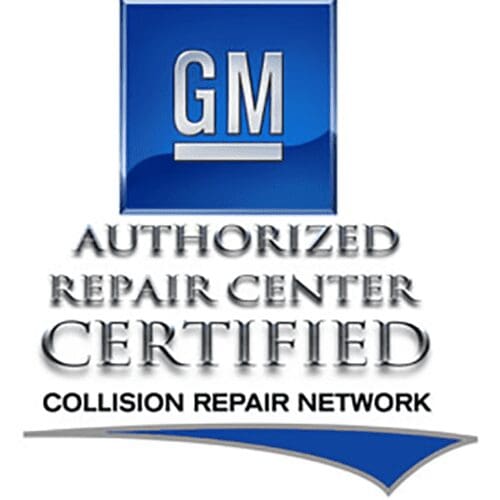Your vehicle is more than just a mode of transportation; it’s an investment that requires care and attention, especially when it comes to protecting it from weather damage. Different weather conditions can significantly affect your car’s performance, appearance, and longevity. Understanding how to keep your car safe from the elements is essential for every car owner. In this article, we will explore the impact of weather on your car, the best practices for car care, and how to protect your vehicle during seasonal changes.
How Can I Protect My Car from Weather Damage?
What are the best ways to protect your vehicle?
To effectively protect your vehicle from weather damage, it’s crucial to adopt a proactive approach. One of the best ways to protect your car is to regularly wash your car to remove contaminants like road salt and dirt that can cause rust and corrosion. Additionally, consider applying a high-quality wax or sealant to your car’s exterior. This layer acts as a barrier against UV rays and other environmental factors. Parking your car in a garage or shaded area can also help protect it from extreme heat and cold weather, reducing the risk of paint damage and interior fading. Furthermore, investing in a quality car cover designed for outdoor use can provide extra protection, especially when parking outside for extended periods.
How often should I perform car maintenance?
Regular car maintenance is essential to ensure your car remains in optimal condition. Ideally, you should perform maintenance checks every 3,000 to 5,000 miles, or at least twice a year. This includes checking tire pressure, oil levels, and fluid levels, as well as inspecting your windshield wipers for wear and tear. Regular maintenance can help you identify potential issues before they become significant problems and can protect your vehicle from the adverse effects of different weather conditions. During seasonal changes, it’s crucial to adjust your maintenance routine to address specific challenges that arise during the colder months or in hot weather.
What role does car detailing play in protecting your car?
Car detailing plays a vital role in maintaining your vehicle’s appearance and protecting it from weather damage. A thorough detailing service involves cleaning the interior and exterior of your car, which can help remove harmful contaminants that may lead to corrosion over time. Additionally, detailing often includes waxing and polishing, which creates a protective barrier against UV rays and other environmental factors that can damage your car’s paint. Regular detailing not only helps keep your car looking pristine but also prevents long-term weather-related deterioration, ensuring your vehicle remains in top shape throughout its lifespan.
What Impact Does Weather Have on Your Car?
How do different weather conditions affect your vehicle?
Weather conditions can impact your vehicle in various ways, affecting everything from its performance to its lifespan. For instance, excessive exposure to extreme heat can lead to overheating engines and degraded fluids, while cold weather can cause battery failures and tire pressure fluctuations. Understanding how different weather conditions affect your car is vital for effective car care. Snow and ice can lead to hazardous driving conditions, and the use of road salt to combat these elements can contribute to rust and corrosion if not washed off regularly. Being aware of these impacts can help you take appropriate measures to protect your vehicle.
What are the effects of extreme heat on your car?
Extreme heat can significantly affect your car’s performance and components. High temperatures can cause your engine to overheat, leading to potential engine damage if not addressed promptly. Additionally, hot weather can affect your tire pressure, causing it to increase and potentially lead to blowouts if not monitored. The interior of your car is also at risk, as prolonged exposure to UV rays can cause fading and cracking of the dashboard and seats. To mitigate these effects, it’s essential to regularly check your fluid levels, maintain proper tire pressure, and use sunshades to protect your interior when parked in direct sunlight.
How does snow and ice impact your car’s performance?
Snow and ice present unique challenges for vehicle owners. Cold weather can lead to reduced battery performance, making it more difficult to start your car. Additionally, snow and ice can impact your car’s traction and handling, increasing the risk of accidents. The use of road salt to melt ice can also accelerate rust and corrosion on your vehicle. To prepare for winter, ensure your windshield wipers are functioning properly, check your tire tread depth for adequate grip, and consider using winter tires for improved performance in snowy conditions. Regularly washing your car to remove salt and grime is crucial to prevent long-term damage.
How Do Seasonal Changes Affect Your Vehicle?
What should I do to prepare my car for winter weather?
Preparing your car for winter weather involves several critical steps to ensure your vehicle can handle the cold conditions. Start by checking your battery, as cold weather can reduce its efficiency. Ensure your tires are properly inflated and have sufficient tread to handle snowy and icy roads. It’s also wise to switch to winter wiper blades, which are more effective in clearing snow and ice. Additionally, consider using antifreeze in your cooling system to prevent freezing. Keeping an emergency kit in your car with essentials like blankets, a flashlight, and a first-aid kit can also be invaluable in case of unexpected situations during winter storms.
How can I protect my car from summer heat?
To protect your car from summer heat, it’s essential to maintain its cooling system and ensure your air conditioning is functioning properly. Regularly check and replace coolant as needed to prevent overheating. Parking in shaded areas or using windshield sunshades can help keep your car’s interior cooler and protect it from UV damage. Additionally, consider applying a ceramic coating to your car’s paint, which can provide an extra layer of protection against the sun’s harsh rays. Regularly washing your car to remove dirt and debris will also help maintain its appearance and protect against environmental damage.
What maintenance is needed during rainy seasons?
During rainy seasons, maintaining your car is crucial to ensure safety and performance. Begin by checking your windshield wipers to ensure they are in good condition, as visibility is key during heavy rain. Inspect your tires for proper tread depth, which is vital for maintaining traction on wet roads. Additionally, ensure that your brakes are functioning efficiently, as wet conditions can affect stopping distances. It’s also advisable to check for rust and corrosion, especially if your vehicle is frequently exposed to water. Regularly washing your car to remove contaminants and applying a protective wax can help shield your vehicle from the damaging effects of water and humidity.
What Can Be Done to Keep Your Car Safe from Weather Conditions?
How can you protect your car from rust and corrosion?
Protecting your car from rust and corrosion is essential for maintaining its value and longevity. Regularly washing your car, especially during winter months when road salt is prevalent, can help prevent rust formation. Applying a rust inhibitor or sealant can provide an additional layer of protection to vulnerable areas. Be sure to inspect your vehicle for any chips or scratches in the paint and address them promptly to prevent moisture from seeping in. Additionally, keeping your car dry and preventing moisture buildup inside the vehicle can help avoid internal rust issues.
What are the best practices for windshield care?
Windshield care is an often-overlooked aspect of car maintenance that can significantly impact your visibility and safety. To protect your windshield, regularly inspect it for chips or cracks and address any issues promptly to prevent them from worsening. Using a quality windshield cleaner and a soft cloth can help keep your windshield clear and free from debris. Additionally, ensure your wiper blades are in good condition, replacing them as needed to maintain optimal performance. During winter, consider using a windshield cover to prevent ice buildup, and remove any snow or ice promptly to avoid straining your wipers.
How important is tire maintenance in different weather conditions?
Tire maintenance is crucial in ensuring your car performs optimally in various weather conditions. Regularly checking and maintaining tire pressure is essential, as it can fluctuate with temperature changes. Under-inflated tires can lead to decreased fuel efficiency and increased wear, while over-inflated tires can compromise traction and handling. During winter, consider switching to winter tires, which provide better grip on snow and ice. In summer, ensure your tires have adequate tread depth to prevent hydroplaning during heavy rains. Regular tire rotations and alignments can also extend the life of your tires and enhance your vehicle’s safety in all weather conditions.
What Are Common Mistakes People Make Regarding Weather and Their Cars?
Why is ignoring weather conditions detrimental to your car?
Ignoring weather conditions can have severe consequences for your vehicle. Failing to recognize the impact of extreme heat or cold can lead to mechanical failures, such as overheating engines or battery issues. Additionally, neglecting to wash your car during winter months can result in rust and corrosion from road salt. By not adapting your car care routine to seasonal changes, you risk expensive repairs and diminished safety on the road. Awareness of how weather affects your car is essential for effective maintenance and protection.
What are the consequences of neglecting car maintenance?
Neglecting car maintenance can lead to a host of problems that can significantly affect your vehicle’s performance and safety. Regular maintenance is crucial to ensure that systems such as brakes, tires, and fluids are in optimal condition. Failure to address these needs can result in decreased fuel efficiency, poor handling, and increased wear on components, leading to costly repairs. Moreover, neglecting to prepare your car for seasonal changes can leave you vulnerable to breakdowns and accidents, making routine maintenance an essential part of responsible car ownership.
How can improper car storage impact your vehicle?
Improper car storage can have detrimental effects on your vehicle, especially if it is exposed to harsh weather conditions. Parking your car outside without protection can result in damage from UV rays, rain, snow, and ice. Over time, this exposure can lead to paint deterioration, fading interiors, and increased rust and corrosion. To protect your car, consider investing in a quality car cover or, ideally, parking it in a garage. Proper storage not only protects your vehicle from the elements but also extends its lifespan, helping you maintain its value and performance for years to come.















